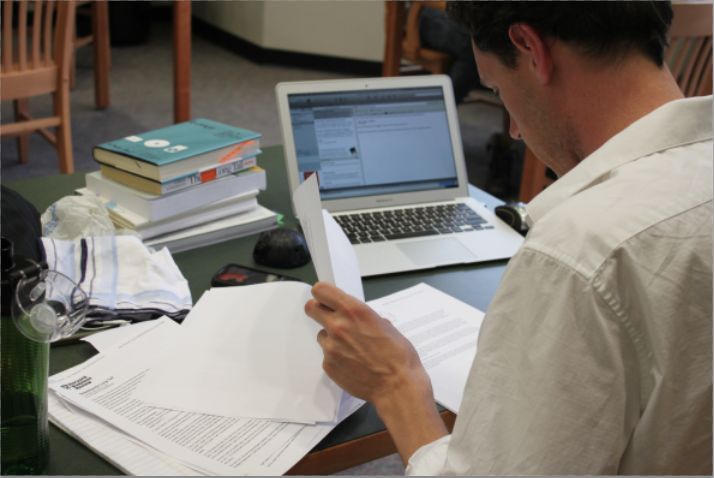Each May thousands of students graduate from college and are left wondering, “What’s next?”
In a economy with tough job options, many students are challenged with how to repay their loans. The Project on Student Debt reported two-thirds of college seniors graduated with loans in 2010, and they carried an average of $25,250 in debt. They also faced a high unemployment rate of 9.1 percent. Despite the high costs of education, there are some alumni who were hesitant entering the job market with only a bachelor’s degree.
Monica Filos, A’10, has a bachelor’s degree in psychology. After graduating, Filos faced the decision whether to enter the job market or take on the challenge of attending graduate school. Filos chose to attend graduate school at Louisiana State University. “When I graduated from Loyola, I actually didn’t know what I wanted to do afterward. I knew grad school was the next step because I can’t do anything with just a B.A. in psychology,” Filos said.
There are students who share Filos’s views about grad school. Some consider it a necessary step in their career plans. “I think grad school is becoming more essential for students to get jobs because many young professionals who have graduated from undergrad are finding themselves working in the service industry or jobs to get them by,” mass communication senior Maggie Moore said. However, Moore also believes that working for a while can show future employers a strong work ethic.
While some students see this as a necessary step, graduate school isn’t a joke.
Mark Fernandez, history professor, said grad school could be a life-changing and fulfilling experience for students if they go for the right reasons.
“I think the “right reasons” begin with having a passion or calling for a subject. I wouldn’t recommend pursuing a graduate degree in the humanities if you didn’t have such consuming passion to follow that discipline that you really didn’t think you could do anything else. If you don’t love the subject, you shouldn’t go to graduate school.”
There are many factors that influence a student’s decision about whether or not to attend graduate school. Grades, acceptance and income are all important to consider when looking for schools. For Shawn Doughty, extra cash is a major influencing factor.”The most important factor that would influence my decision would be the potential for additional marginal income. Financial issues are a major factor, but not a deciding factor,” Doughty said.
Professor David Khey, director of the Master of Science in criminal justice administration program, believes graduate school is an excellent way to expand on intellectual growth which undergraduate studies only begin to scratch the surface of. Yet professors warn that staying focused can be the biggest challenge.
“You can lose your focus, and just float through this period. The bad part about this for many people is that student loans will tend to rack up, graduate school becomes less likely to amount to much in the long run, and many students lose their way. It happens. Some of my friends knew when to cut their losses,” Khey said.
Loyola has many professors who hold a Ph.D. and many of them have received awards, including Fernandez, who received the Dux Academicus Award in 2010. Fernandez’s best advice to students considering graduate school is simple.
“Get good grades, be realistic in your expectations of acceptance and don’t even considering going to graduate school if you don’t love your subject,” Fernandez said.






